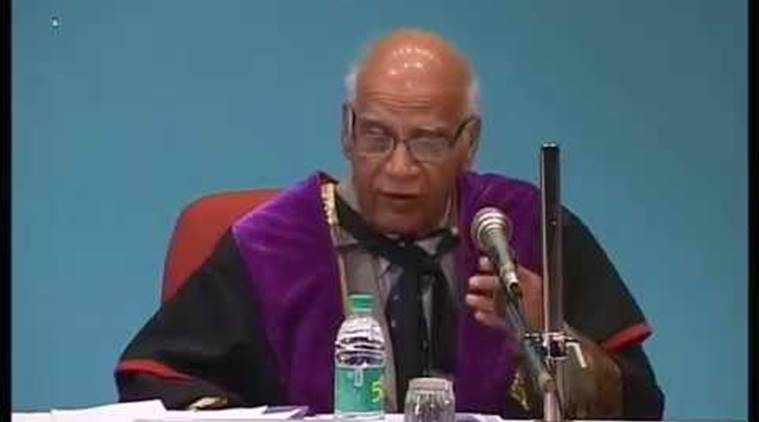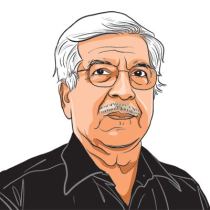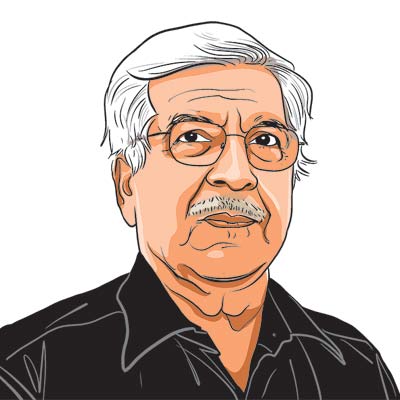T N Srinavasan: The Enduring Economist
T N Srinivasan’s work will continue to enrich the discipline of economics.

T N Srinivasan was a critic of the movement on IPRs. A good neoclassical economist, he argued that intellectual property regimes should not have the fetters they do at present. (Photo: YouTube)
T N Srinavasan was a giant amongst economists of Indian origin. His initial career was in the Planning Unit of the Indian Statistical Institute then located in the Planning Commission. He worked on the trade aspects of the development plan and built up tools for measuring the efficiency of industries using global norms. Economists in Delhi those days were a closed lot with contentious viewpoints. He, with Jagdish Bhagwati and Suresh Tendulkar, was critical of S Chakravarty’s Fifth Plan model. Earlier, Srinivasan had introduced me to Anna Krueger to extend the work we were doing on Indian industry in Ahmedabad.
With M R Saluja, he wrote a critique of the Plan model. At that time, I had joined the Perspective Planning Division as its in-charge and promised him a response. After a fortnight, he stormed into my room and asked for a reply. I told him, “TN, we are working on it”. The academic in him made him say, “that’s fine Yoginder”. We did respond and I am told he resisted the pressure to carry on the debate in public. In a later debate at the Delhi School of Economics, he said the Fifth Plan is delayed and there was now no need to take it seriously. I had the house laughing when I said, “You are unhappy at the delay and the finalisation… You won’t let me climb the horse or get down?” As a professor, he came back with a serious critique to which I responded that we will always take your serious arguments seriously, TN.
Years later at Rome, I invited him for a meal when he was visiting from the World Bank. Unlike the die-hards, he told me I was right that trade-dominated efficiency measures are not the only benchmarks for building an industrial plan but are surely important. A scholarly, mature and important statement — not for the headlines. In a more important sense, he was pre-dating what went into the reforms of the Indian economy that started in the mid Eighties. From then on, he was to continuously write on the Indian economy, in professional journals, Bretton Woods reports and the Indian press. You ignored him only at your peril.
Srinivasan argued that efficiency in trade was one of the important criteria for building a development strategy. But he was fully aware of the adage that you can look at possibilities around it and it was very important that what you do should be done well. He carried his scholarship lightly and knew that one could influence events only with a mature perspective in which your work had to be presented in a real-world context.
A few years ago, I was to spend time with him again in a meeting of the Indian Economics Association. His lecture was a scholarly masterpiece of an understated model of Indian economic reform. It pushed concerns on health, education and, most important, questions of governance. A lot of his published work in the last decade-and-a-half has been on these issues. In the US, he pioneered the introduction of these perspectives in the theory of economic development. Srinivasan was not one to rest on the laurels of his past work. In India, he was to highlight the loss to the economy and society in ignoring these perspectives.
Srinivasan was a critic of the movement on IPRs. A good neoclassical economist, he argued that intellectual property regimes should not have the fetters they do at present.
Unlike many of his more flashy contemporaries in India and abroad, Srinivasan will probably leave behind a more lasting legacy. Anybody who seriously studies the history of economic ideas knows that the fashions of a period don’t even get a footnote a few years down the line. But the women and men who endure and then develop their themes matter — not in terms of headlines, but in getting incorporated in the body of thought that a discipline is all about. And economics and economic development theory is one such discipline. It is, at heart, conservative and has its own hierarchy. It doesn’t really accept the outsider.
Srinivasan and his ideas will endure — a worthy example in a world of the two-minute message.
The writer, an economist, is a former Union minister
For all the latest Opinion News, download Indian Express App
More From Yoginder K. Alagh
- Happy Hours & Happy SeedersHow electioneering throws a spanner on solving real problems...
- Policy paralysisGovernment seems blind to the crisis in agriculture, slowdown in industry ..
- The Uncovered Last MilePolicymakers need to ask why programmes for farmers do not reach them...








































No hay comentarios:
Publicar un comentario